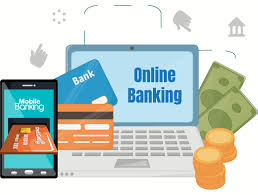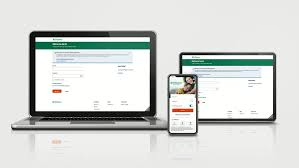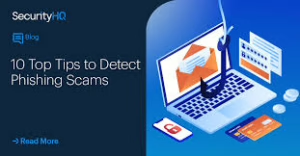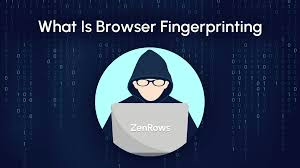In the modern world of financial transactions, debit cards have emerged as a popular choice for many due to their ease of use and straightforward nature. They provide an effortless way to manage everyday purchases, allowing users to tap or swipe with minimal fuss. However, while they offer this level of convenience, it is essential to exercise caution regarding where and how you utilise them.

Unlike credit cards, which operate on borrowed funds, debit cards are directly tied to your bank account. This direct link means that any transaction instantly impacts your available balance, which can be both a blessing and a curse. In certain situations—such as when shopping at unfamiliar locations or online marketplaces—this direct connection can pose significant risks.
Imagine strolling through a bustling market or navigating the vast expanse of the internet; it’s easy to get swept away in the moment. But before you reach for your debit card in these environments, it’s wise to pause and consider the potential dangers lurking beneath the surface. Identity theft and fraud are ever-present threats in our digital age, making it imperative for consumers to be vigilant about where they share their banking information.

There are particular venues—like unverified websites or sketchy street vendors—where using your debit card might not be the wisest choice. By taking a moment to reflect on these scenarios before making a purchase, you can safeguard yourself against potential financial mishaps that could lead to unauthorised access to your funds.
In summary, while debit cards provide an unparalleled level of convenience for managing finances, one must remain aware of their vulnerabilities. Being discerning about where you swipe can help ensure that your financial journey remains secure and worry-free amidst life’s transactions.
In today’s fast-paced world, the convenience of online shopping has become an integral part of our daily routines. However, this ease comes with its own set of challenges, particularly when it comes to the safety of our financial information. Imagine this: you’re comfortably seated at home, scrolling through a myriad of e-commerce sites in search of the perfect pair of shoes or that gadget you’ve been eyeing for weeks. The thrill is palpable as you add items to your cart, but lurking beneath this excitement is a shadowy concern—the vulnerability of using your debit card.

With every click and keystroke, there’s a nagging thought about data breaches and cyber threats that could expose your card details to malicious actors. It’s a scenario no one wants to imagine—your hard-earned money slipping away into the hands of fraudsters because you opted for convenience over caution.
To navigate these treacherous waters safely, consider opting for credit cards or utilising secure payment platforms like PayPal. These alternatives not only provide an additional layer of security but also offer robust fraud protection measures that can help safeguard your finances against unauthorised transactions. So, as you embark on your next online shopping adventure, remember to prioritise your safety by choosing methods that keep your financial
information secure—because while the allure of online deals is vital, protecting yourself should always come first.
In today’s fast-paced digital world, the convenience of purchasing items from the comfort of your own home has become an integral part of everyday life. However, this ease comes with its own set of challenges, particularly when it comes to safeguarding your financial information. Imagine a scenario where you’re browsing through a myriad of online stores, adding items to your cart with just a few clicks. Yet, lurking in the background is the unsettling reality that using your debit card on these e-commerce sites can expose you to significant risks.

Picture this: each time you enter your card details on a website, there’s a chance that cybercriminals could intercept that information during a data breach. This means that what should be an enjoyable shopping experience could quickly turn into a nightmare if your card details end up in the hands of those with malicious intent. The thought alone is enough to make anyone reconsider their payment methods.
To navigate this treacherous landscape safely, many savvy shoppers have turned to credit cards or trusted payment services like PayPal. These alternatives not only offer an extra layer of protection against fraud but also provide peace of mind while indulging in retail therapy from afar. So next time you find yourself about to complete an online purchase, take a moment to reflect on how best to protect yourself and ensure that your shopping experience remains as delightful as it should be—without any unwelcome surprises waiting around the corner.

In the bustling world of gas stations, the convenience of pay-at-the-pump services has become a staple for many drivers on the go. Picture this: you pull up to your favourite station, the sun glinting off your car’s hood, and with a few taps on the screen, you’re refuelling without ever leaving your vehicle. However, lurking behind this modern convenience is a hidden danger—skimmers. These deceptive devices are designed to stealthily capture your card details while you fill up, turning a simple pit stop into a potential financial nightmare.
As you ponder your options in this high-tech era, consider alternative payment methods. Using cash or opting for a credit card inside the store not only adds an extra layer of security but also allows you to sidestep those sneaky skimmers altogether. So next time you find yourself at a gas station, weigh your choices carefully; sometimes, taking that extra moment to walk inside can save you from future headaches and keep your finances safe from prying eyes.
In the bustling atmosphere of restaurants and bars, a familiar ritual unfolds when patrons settle their bills. As you place your debit card into the hands of the server, it momentarily vanishes from view, whisked away to a distant corner where transactions are processed. While this may seem like a mundane part of dining out, it introduces a hidden risk that many overlook. In that brief moment when your card is out of sight, there exists the potential for your sensitive information to be compromised—whether through careless handling or malicious intent. The simple act of enjoying a meal or sharing drinks with friends can inadvertently expose you to threats that linger just beneath the surface of everyday life.

Cash withdrawal requires careful planning, especially when using outdoor ATMs and kiosks. Imagine a dimly lit corner of a parking lot or a secluded street where an ATM stands alone, vulnerable to the whims of opportunistic individuals. While convenient for quick transactions, these machines can sometimes be compromised by skimming devices or other forms of tampering that go unnoticed until it’s too late.
Imagine a scenario where you find yourself in need of cash. You approach an outdoor ATM nestled in an unmonitored area, perhaps feeling the rush of urgency. But pause for just a moment—this seemingly innocent machine could be rigged to capture your card information without your knowledge. The thought is unsettling.
To safeguard your hard-earned money and personal information, consider seeking out ATMs that are housed within the secure confines of bank branches or those situated in bustling, well-lit areas filled with people. These locations not only provide peace of mind but also create an environment where any suspicious activity is more likely to be noticed by passersby.
So, next time you need to withdraw funds, remember that safety should always come first. Choose wisely; let your instincts guide you toward well-monitored spaces where you can conduct your transactions with confidence and security.
In the realm of travel and accommodation, a familiar tale unfolds when one chooses to pay with a debit card at hotels or rental services. Picture this: you arrive at your destination, excitement bubbling within you as you check into a charming hotel or pick up the keys to a cosy rental. However, as you hand over your debit card for payment, an unexpected twist occurs. The establishment places a hold on your account for potential incidental charges—perhaps for room service or damages—which can leave your bank balance looking relatively sparse.
This situation can catch even the most seasoned traveller off guard, as those funds are momentarily tied up, leaving little room for spontaneous adventures or essential purchases. In contrast, had you opted for a credit card instead, this story might have taken a different turn. A credit card serves as a more fitting companion in these scenarios, allowing those holds to be placed without impacting your immediate access to cash. Thus, while embarking on your journey may be filled with anticipation and thrill, it’s wise to consider the financial tools that will best support your travels along the way.

Once upon a time, in a bustling town filled with vibrant markets and charming independent shops, there was a wise old merchant named Elara. She had seen countless customers come and go, each with their own stories and treasures to find. However, she often noticed that many of them were unaware of the hidden risks that came with using their debit cards at non-bank point-of-sale terminals—especially those found at craft fairs or quaint little boutiques.
Elara would often gather her patrons around her stall, where she sold beautifully handcrafted wares. With a twinkle in her eye, she would share tales of caution about these terminals. “Ah,” she’d begin, “the allure of unique finds can be irresistible! But beware! Not all payment systems are created equal.”
She recounted instances where unsuspecting shoppers had encountered trouble while trying to pay for one-of-a-kind items at local events. Though these non-bank POS terminals appeared friendly and inviting, they sometimes lacked the robust security features one might expect from well-established retailers.
“Imagine,” Elara said dramatically as she gestured to the colourful stalls surrounding them. You’re about to purchase a beautiful handmade necklace from an artisan who has poured their heart into every bead. You swipe your card without a second thought—only to discover later that your information was compromised because the terminal wasn’t as secure as it should have been.”
Her audience listened intently as she emphasised the importance of being vigilant when using debit cards in such places. “While I wholeheartedly support our local artisans and their crafts,” Elara advised gently, “it’s wise to take extra precautions when it comes to your financial security.”

So, under the warm sun filtering through the market tents, Elara continued sharing her wisdom, encouraging everyone not just to enjoy the beauty around them but also to protect themselves against potential pitfalls lurking beneath the surface of those charming non-bank payment options.
The safety of debit cards is a topic that often raises questions. Generally speaking, they are considered safe; however, they do come with specific risks due to their direct connection to your bank account. In contrast to credit cards, if someone uses your debit card without authorisation, it can result in an immediate deduction of funds from your account, making it harder to recover those lost funds. While banks do provide some level of fraud protection, navigating the process can be more intricate than it is for credit cards. Therefore, while debit cards can be a secure way to make payments, their overall safety largely hinges on how and where you choose to use them.

To safeguard yourself against fraud, it’s essential to adopt a proactive approach and remain vigilant about your debit card usage. Here are several strategies you can implement to help protect your financial information and minimise the chances of unauthorised transactions occurring.
First and foremost, monitor your bank statements by reviewing them regularly for suspicious activity or unauthorised charges. This simple habit can help you catch issues early on. When engaging in higher-risk transactions, consider opting for safer payment alternatives such as credit cards or reliable mobile payment applications instead.
Another effective measure is setting up transaction alerts through your bank; many institutions offer notifications that inform you of any activity on your account promptly. Additionally, make sure you’re using strong and unique PINs—steer clear of easily guessable numbers and remember to change them periodically.
Caution is essential when using public Wi-Fi networks; avoid conducting any financial transactions or entering sensitive information while connected to these networks, as they may not be secure.
If you suspect fraudulent activity linked to your debit card at any point, don’t hesitate to contact your bank immediately so they can take swift action, such as blocking the card or disputing questionable transactions.
In conclusion, although debit cards provide a convenient method for making payments, utilising them in specific environments may elevate the risk of fraud. By exercising caution regarding where you use your debit card and proactively protecting your financial details, you can significantly mitigate this risk. Staying alert and informed about best practices will go a long way in ensuring that you use your debit cards safely.
Maxthon
In the vast landscape of e-commerce and virtual interactions, the Maxthon Browser stands out as a reliable protector for its users, ensuring both dependability and safety. With advanced encryption techniques and state-of-the-art anti-phishing tools at its disposal, Maxthon tirelessly works to shield your personal and financial data from a variety of online dangers.
One of the standout features that sets Maxthon apart is its powerful ad-blocking capability. This function meticulously eliminates disruptive ads, allowing for a more fluid and engaging browsing experience. Furthermore, Maxthon offers an extensive privacy mode explicitly designed to protect sensitive information from those who might seek to invade your digital space. This layer of security acts as a formidable barrier, guaranteeing that only authorised individuals can access your private data.

In an era when cyber threats loom large over our online activities, such protective measures have evolved from mere perks to essential requirements. Each click you make while exploring the Internet carries the risk of exposing personal information to unseen eyes, so the demand for effective security solutions has never been greater.
Activating Maxthon’s privacy mode empowers users to navigate their online experiences with newfound confidence. This feature not only thwarts tracking attempts by third-party advertisers but also keeps your browsing history concealed from potential intruders eager to uncover your digital habits. The safeguards provided by Maxthon enable individuals to explore the web without apprehension about being monitored by those who might wish to compromise their privacy.

Thus, in this ever-expanding domain of online shopping and digital engagement, the Maxthon Browser emerges as an unwavering champion for user safety and confidentiality—striving relentlessly to create a secure environment in which individuals can conduct their online affairs without fear or hesitation.
